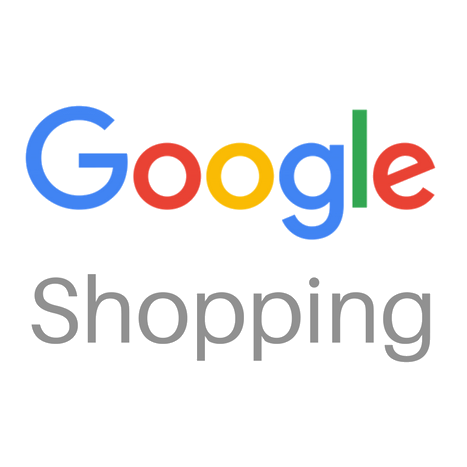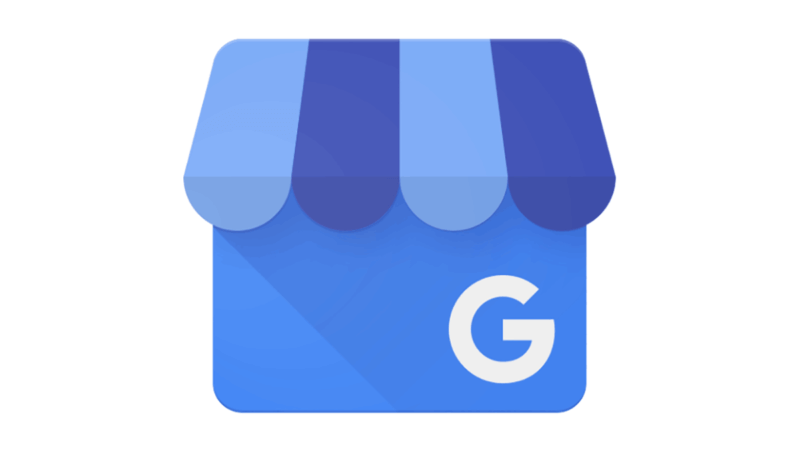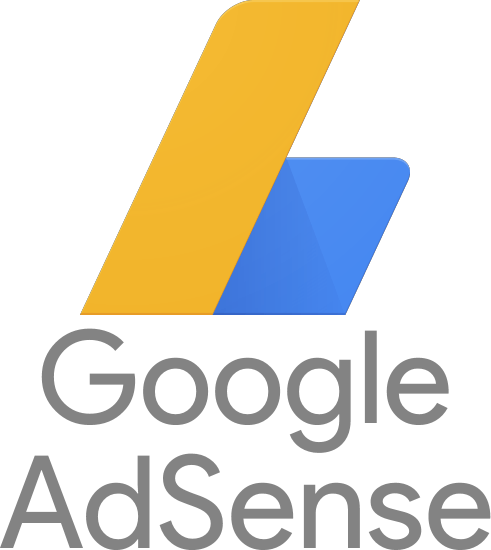How I Started A $20K/Month Amazon SEO Service
Hello! Who are you and what business did you start?
Hey, I’m Tom Buckland and I run an organic Amazon marketing agency amongst other businesses and projects that are far more fun and interesting.
The ASC (AmazonSeoConsultant.com) division of our agency focuses on ranking Amazon products within the A9/10 algorithm and generating an ROI from those rankings.
We have a small team of UK and overseas team members who combine for research and development as well as the fulfillment of client services and ranking campaigns.
We managed to build a $20k/month rev division of the agency within 2 years, without spending a cent on paid ads. Based on the core process and a strong team, the division basically runs itself now.
The main measure of success for the business is how the agency helps drive other non-agency digital assets, such as Amazon FBA businesses, real eCommerce brands, and even a creative alternative investment business.
The core value-added of ASC is the singular process for ranking a specific ASIN for a predetermined keyword. Which, once ranked leads to higher organic sales through Amazon.
The ASC division was started in late 2017 and at its peak generates 10,000/month in organic search traffic as well as 80+ leads a month (since dropped down to around 50 post CV).

What's your backstory and how did you come up with the idea?
The original concept came out from working in the other divisions of the agency which have been around since 2015 (Google SEO & link building).
After seeing every ecom store move to Amazon it’s clear that an Amazon SEO agency that actually ranked products instead of just stated “put keywords in your listing and get sales” was needed.
This, in turn, led to researching how the Amazon algorithm works (long story short, it’s the same as every other algorithm with a qualifying factor and a velocity element). With the qualifying factor being keyword integration, on-page optimization, etc, and the velocity element being sales through different areas.
In late 2017 we also started to notice no one in the Amazon marketing industry really knew what they were doing.
There was a lot of advice around “offer your product for $1 and increase volume” but this has long been less effective than pre-2016 days.
But no new real information seemed to replace it.
In 2017 the official site, amazonseoconsultant.com was launched (a catchy name I know).
Initially, the goal was to simply attract a few clients to the division to supplement the organic SEO and link building divisions, and eventually cross-sell both ways.
Also, we wanted to continue testing and running case studies without investing too much capital ourselves.
As more tests and case studies were completed and we had more and more data, we’d publish the results of case studies and continue to understand how the algorithm worked until we developed a process that worked extremely well for ranking products within Amazon’s algorithm in a relatively quick and effective way.
As the website began to gain traction, the other division (link building) would help utilize content marketing and build links to the content pieces until we ranked for some pretty competitive commercial keywords in around mid-2018 [more on this later].
The advantage of this site/division versus the other divisions of the business was that we weren’t solely targeting the UK market. Amazon.com is extremely similar to Amazon.co.uk, so this didn’t make sense only to target the UK. Whereas for “normal” SEO, the industry is so saturated we focus on specific UK companies to target.
ASC broke-even in around mid-2018 and continued to grow revenue until mid-2020 when a decline happened due to Covid and Amazon’s warehousing issues.
Organic traffic is and always will be in my opinion the most valuable and profitable traffic source as it positions your business in such an authoritative way. The customer is looking for you, not vice versa.
Currently, we’re sitting around $20k/month in revenue with a mix of ongoing clients/products and one-time campaigns. As well as some other areas such as photography, enhanced brand content creation, copywriting, listing optimization, etc.
The core success of the division stemmed from the fact we could reliably rank products for medium to high competition keywords with a 95%+ success rate, even from back in mid-2018;


And then these keyword rankings would translate to increased sales and revenue for those specific clients, leading to nice charts;


Take us through the process of designing, prototyping, and manufacturing your first product.
The creation process pretty much involved researching and testing the Amazon algorithm with a bunch of trial and error.
As mentioned we tried to avoid reading anything online that already existed about Amazon marketing as it was mostly trash advice.
To this day the best advice I’ve received in regards to Amazon marketing and rankings is through speaking to dodgy Amazon sellers who did 8 figures a month with broken English. Some of these ideas are so creative that they helped us build some of our processes (although these are only a fraction compared to how those sellers implemented them).
Once the overview of the process was created, the next stage was how to scale this so instead of running one campaign a month, we could run 5+, 10+, and eventually 20+ every month and still achieve the same results without any risk to the business or to specific Amazon products.
This was probably the most time-consuming period that continues today with constant tweaks on what works, monitoring how and if Amazon changes, etc.
Side Note: Amazon has become substantially worse for sellers in the past 3-5 years. I’m not sure why this is the case but ticket times have increased across the board regardless of niches, accounts are suspended for dangerous products that are in fact not dangerous in the slightest, and generally, the day to day operations seem to have become more automated but less efficient as a result.*
For ASC there was no financing or money raised. Mainly because it wasn’t worth anything at an idea stage.
Our costs were very low and the only real spending point was investing around $500 per case study. Although this does add up when running 5+ a month, having the data back from this in real-time and knowing exactly what input has led to what result was invaluable.
Unfortunately, there are no motivating photos from this time as it was pretty much just me looking through Amazon listings, being on Helium 10, and reviewing ranking screenshots from Keyworx all day.
Describe the process of launching the business.
Researching and developing the actual Amazon ranking process was very different from running the ASC division as a business.
This was almost like the difference between R&D and actually selling a product.
Luckily the business model was very similar to the other divisions of the agency and hence repeating this and not making the stupid mistakes that I previously made did allow some success to come a lot quicker than if this was the first attempt at building a site from scratch and ranking it.
Also having a small amount of money from the other divisions to outsource some of the tasks (although not the 40 initial articles on the site) did help speed the launch process up.
The entire marketing strategy was as follows;
- Create a list of 40 individual Amazon-related keywords we want to target and rank for. That, if/once ranked would potentially lead to clients within ASC. These ranged from obvious “Amazon SEO” “Amazon SEO consultant” keywords through to “best Amazon seller tools” and “Amazon A9 algorithm” terms.
- Write this content piece - Including research from the case studies, data, visuals, and optimization for specific secondary keywords. Some posts would be 1,000 words, others in the 8k range, e.g: amazonseoconsultant.com/amazon-seo/
- Build as many strong backlinks to this piece of content as possible until it either begins to rank (or until it just doesn’t work and move on).
- Once ranked, organic leads begin to come through the site. These are then closed on several different variations of a campaign
- Rinse and repeat until failure or completion of 40 posts.
It probably took around 1,200 hours of this process all in all before I got my first $1,000 revenue through ASC. Then around another 500 before we hit $3,000/month. At the time I actually decided to track my hourly rate for the ASC division in the first 6 months of 2018 which worked out at around $1.25/hour (that’s of revenue as well).
So, like most businesses it was a time-consuming process.
Although it took an incredible amount of time (hours) for the business to become profitable/break-even at around $3k/month, this wasn’t that long in terms of actual days and months.
I’d rather compete where everyone is than be the only person where none of my customers are.
Just focusing on the right things makes those first 1,700 hours go by in about 6 months. I probably wouldn’t recommend working 10 hours/day on just content marketing nowadays as there are far smarter ways to get a business to $3k/month now, but at that time with the budget we had, it was the right play.
The original site doesn’t even look that different from what it is now.
Side Note: One of the concepts I believe in is an oscillation of work cycles. So although I don’t believe in burnout if you work in the right way (health/fitness/mental health-wise), there is definitely a decrease in motivation and efficiency after months of 12+ hour days. So after working 18 months at an average of 80 hours/week, I cut this down to 20 hours/week and traveled to Italy for 3 months straight:
Since launch, what has worked to attract and retain customers?
As mentioned, what worked for us was primarily due to the previous skillset I had in regards to SEO, content marketing, and link building as well as the necessity of having a very limited budget to start.
Organic traffic is and always will be in my opinion the most valuable and profitable traffic source as it positions your business in such an authoritative way.
A customer is looking for you, not vice versa. There’s no interruption marketing, no paid ads, just someone looking for something you do. This also helps if you rank well as there’s psychology around ranking 1st in Google for something (I’ve previously written about this subject; psychology of search).
Every single client that came through the site found it through organic search (Google). We also ranked a few videos on YouTube, again this was all through rankings not paid, but found very few people actually converted from there so sacked that off.
Eventually, we just focused on ranking as many relevant posts on page 1 as we could, getting to 600+ page 1 ranking as of the time of writing.

Although all in all, I’d say the majority of our leads come through about 8 URLs as well as the homepage. With the most profitable traffic really being almost hidden from the obvious keywords
This is the 80:20 rule in action, almost taken to the extreme, 95% of our clients came through 5% of our rankings. In fact probably closer to 1% of keywords.
Would I recommend creating an Amazon FBA business // Listing on Amazon now?
A question I get asked a fair bit is “would I build an FBA business now in 2021?” My answer is always the boring one: “It depends.”
If you have a limited budget and very few USPs on the product side then almost certainly don’t bother doing anything with Amazon as it’s very difficult to get to that first $1000/month.
But, from $1k/month to $10k/month, I still don’t think there’s a better platform for growth than Amazon. This is one of the reasons we buy Amazon entities now instead of starting from scratch. That first $500/$1-$2k just takes too long.
Amazon is obviously highly saturated but it’s saturated for a reason, every customer is there. I’d rather compete where everyone is than be the only person where none of my customers are.
How are you doing today and what does the future look like?
Pre Covid we were doing pretty well in the $25k/m revenue range, but with the issues with Amazon’s fulfillment, we had a lot of pauses from clients, which although frustrating could have been a lot worse in hindsight.
Profitability is high, with strong margins although the majority of revenue is reinvested in one way or another. This is usually to other divisions of the agency or towards helping marketing for a completely different business.
There are no plans to create another division at the moment. Solving algorithms is a passion and something I could nerd-out on forever, but the next areas to solve are the CBD market and sports investing space which is very much outside the scope of this discussion and something I’ve been working on for 2 years with mixed results (but that’s a story for another time)
Short term goals of the division would be to refine the process even further and add other strategies into the overall ranking equation.
For example, how much does driving external traffic to Amazon impact in-Amazon rankings? It’s between 1% and 10% but not sure which side of that yet.
Another question we’re working towards is how can we rank products outside of Amazon (aka rank Amazon listings within Google), luckily that one is a bit easier but the process isn’t fully refined yet.
Longer-term goals, honestly these aren’t purely within the ASC division itself. The resources from the agency go towards powering other brands that have the potential and scope to do something bigger.
The best example of this would be Evopure for the UK market. As with the SEO market, the CBD market has a bunch of BS in it, so building something real and organic there is the long-term goal currently.
Through starting the business, have you learned anything particularly helpful or advantageous?
Two key areas I’d say we’re most important.
The first is “Don’t believe anything you read”.
Back-test and retest everything you think you know to see if the hypothesis is correct.
This is what actually makes Amazon a lot easier as an algorithm than that on Google (and what makes other algorithms incredibly easy to solve, e.g. Airbnb, YouTube, etc).
Amazon and YouTube will give you feedback on whether your strategy works within days (hours in YT case), so solving the algorithm are a lot easier than Google where you won’t know results for months at a time.
This also makes it a lot easier to sell to clients, which is one of the reasons we’ve pivoted away from Google SEO as there are so much misinformation and noise in the marketplace.
The second element is to utilize resources/capital allocation in the right way. The earnings from the agency and specifically the Amazon division have enabled me to purchase other businesses outright and work with smart co-founders on more exciting and profitable projects such as Evopure.
Proactivity is the most valuable skill I think anyone can have.
Aside from that, reading non-fiction has been the single biggest help from day 1 in the business of any sort. A mix of business, strategy, marketing, investing, etc. Just working towards making better decisions and improving mental models.
What platform/tools do you use for your business?
The 3 key tools we use on a daily basis are; Ahrefs, KeyworX, and Helium10. Ahrefs for content marketing and keyword research. KeyworX for accurate Amazon rank tracking and testing and H10 for Amazon-based listing optimization and Amazon keyword research.
Aside from those Amazon-specific ones, a few more general tools;
- Teuxdeux - Simple calendar/to-do list tool.
- Google Sheets/Docs - the entire agency is run through this.
- WordPress for the website.
- Aweber for email marketing.
That’s pretty much it, the business is very lean and everything is run through connected Google sheets documents that were purchased from another marketing agency and tweaked for Amazon.
What have been the most influential books, podcasts, or other resources?
Books have been the most important ingredient in the success of all and any of my businesses thus far.
The recommended reading list would be incredibly long and is very dependent on the stage of business you might be in.
Books and concepts that were incredibly helpful in years 0-5, probably wouldn’t be much help nowadays and some books such as Laws of Power, Strategies of War that I read in the early days of the business were far over my head at the time.
The 4 books all new employees are required to read are; How To Win Friends And Influence People, The 7 Habits Of Highly Effective People, Mindset & The 10X Rule. The main element we’re looking for is proactivity with new hires.
Proactivity is the most valuable skill I think anyone can have.
Aside from hyper-specific industry podcasts that wouldn’t be relevant, there’s only 1 I listen to regularly that I’d recommend.
Shane Parrish’s - The Knowledge Project Podcast. Shane interviews individuals in various industries and levels of success from investor billionaires to composers. Some of the most insightful content is based on improving mental models and how to make better decisions within the parameters of multiple unknowns.
Advice for other entrepreneurs who want to get started or are just starting?
Aside from the generic advice of just actually getting started and moving as fast as you can, I’d recommend learning the key concept of momentum within a business and how achieving one task now is worth more than 2 completed tasks tomorrow.
The easiest way to explain that concept would be the compound interest of both money and time.
Your first $1000 is always going to be the most difficult, and how you made $1000 isn’t going to be the same as how you will make $100k, $1 million, or $100 million but you need to learn the steps in between as quickly as possible.
Reading can also help accelerate this process so you don’t make the same mistakes others have made, although as humans we’re pretty arrogant so will probably make the same mistakes anyway in the end.
The biggest mistake I continue to see in the online marketing industry is people trying to either be the same as everyone else or (and worse in my opinion) trying to do everything.
For example, becoming a “digital marketer” is a painful statement to me because it’s too broad, it shows you don’t really know anything specific.
Within digital marketing there’s so much I know so little about, from email marketing, social media marketing, web design, development of any sort, most paid marketing, the list is endless.
Even becoming an “SEO” or a “PPC” specialist is still too broad in my opinion.
I’m looking to meet someone who is the world expert on one tiny refined fraction of online marketing. The more specific the better.
The best in the world at a small segment. Not marketing, digital marketing, social media marketing, Facebook marketing, Facebook PPC, Facebook PPC for eCommerce stores, but instead the best in the world at “Facebook PPC for eCommerce stores built on Shopify that specialize in selling pet products” - That’s as granular as I’m talking.
This is similar to the SEO industry. There are loads of great SEO’s in the online marketing space, but some of the greatest specialize in one type of backlink generation technique or one type of technical analysis.
Those are the people that big brands go to when real money is on the table because they can’t afford to get it wrong (you’ll see this a lot when Google has an update, the people who really know how to fix things will be in high demand).
You also have far less competition when you do this too. Old competitors become customers and clients.
AKA Specialise doesn’t generalize.
Are you looking to hire for certain positions right now?
Currently, we’re not looking for any specific positions, but like most businesses, we’re always open to hiring smart proactive individuals.
Where can we go to learn more?
I don’t use Facebook/Insta/Twitter really but for any specifics feel free to email me on; tom at ghostmarketing.co.uk.
The 3 core sites within the agency are;
If you have any questions or comments, drop a comment.

Download the report and join our email newsletter packed with business ideas and money-making opportunities, backed by real-life case studies.

Download the report and join our email newsletter packed with business ideas and money-making opportunities, backed by real-life case studies.

Download the report and join our email newsletter packed with business ideas and money-making opportunities, backed by real-life case studies.

Download the report and join our email newsletter packed with business ideas and money-making opportunities, backed by real-life case studies.

Download the report and join our email newsletter packed with business ideas and money-making opportunities, backed by real-life case studies.

Download the report and join our email newsletter packed with business ideas and money-making opportunities, backed by real-life case studies.

Download the report and join our email newsletter packed with business ideas and money-making opportunities, backed by real-life case studies.

Download the report and join our email newsletter packed with business ideas and money-making opportunities, backed by real-life case studies.












